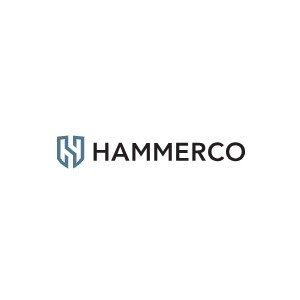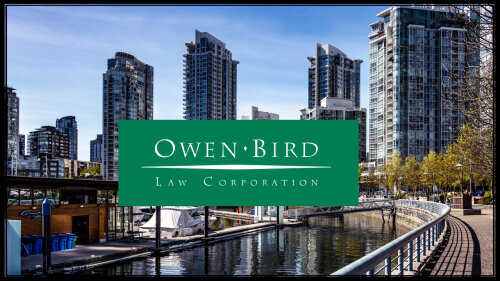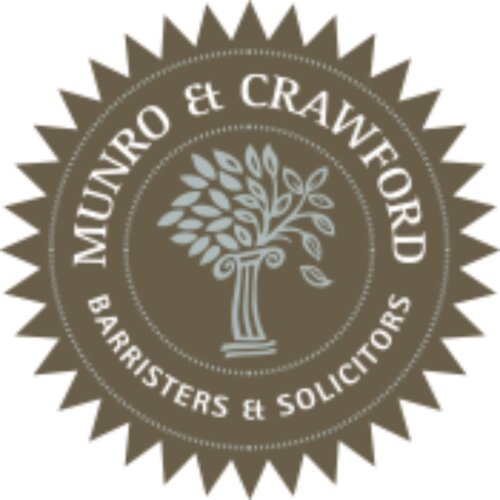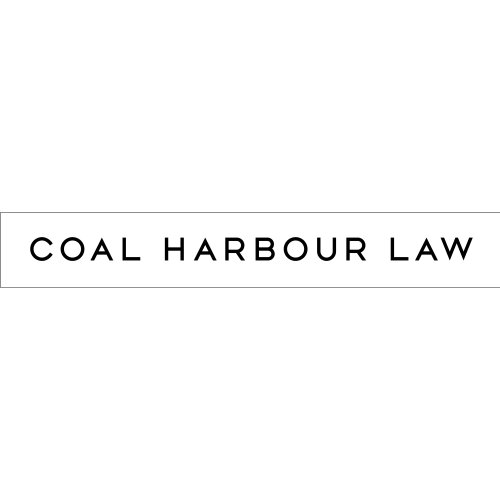Best Sanctions & Export Controls Lawyers in Vancouver
Share your needs with us, get contacted by law firms.
Free. Takes 2 min.
List of the best lawyers in Vancouver, Canada
Canada Sanctions & Export Controls Legal Articles
Browse our 2 legal articles about Sanctions & Export Controls in Canada written by expert lawyers.
- How Foreign Subsidiaries in Canada Can Meet 2026 Export Laws
- How Foreign Subsidiaries in Canada Can Comply With 2026 Export Controls Key Takeaways Navigating the 2026 updates to Canadian trade regulations requires foreign subsidiaries to localize their compliance protocols rather than relying entirely on global corporate frameworks. The revised regulatory environment enforces strict localized auditing and screening measures. Distinct Legal... Read more →
- Sanctions Compliance for Canadian Businesses - Trade Risks
- Canadian businesses are subject to strict liability under the Special Economic Measures Act (SEMA) and the Justice for Victims of Corrupt Foreign Officials Act (FAC), meaning intent is often irrelevant to a finding of a violation. All Canadian citizens and businesses, regardless of where they operate in the world, must... Read more →
About Sanctions & Export Controls Law in Vancouver, Canada
Sanctions and export controls law in Vancouver, Canada, is a complex and highly regulated area that governs the transfer of goods, technology, and services across borders. These laws are primarily designed to protect national security, uphold foreign policy objectives, and comply with international obligations. In Vancouver, as part of Canada, businesses and individuals must comply with federal legislation that restricts certain transactions, especially those involving specific countries, individuals, or goods considered sensitive. Violations can result in severe penalties, including fines and imprisonment.
Why You May Need a Lawyer
Legal assistance is often crucial in the realm of sanctions and export controls. You may need a lawyer if you are:
- Operating a business that exports goods or technology from Vancouver to other countries
- Involved in international trade and unsure about the sanctions status of a customer or business partner
- Subject to an investigation or enforcement action from Canadian authorities
- Concerned about compliance with evolving domestic and international sanctions regimes
- Seeking guidance on applying for export permits or exemptions
- Dealing with potential asset freezes or other restrictive measures
- Worried about inadvertently violating sanctions due to complex supply chains
- Moving goods, data, or financial services across borders as part of your business operations
A qualified lawyer can help you understand your obligations, build robust compliance programs, respond to government inquiries, and protect your interests.
Local Laws Overview
In Vancouver, the primary laws governing sanctions and export controls are enacted at the federal level but have significant daily impact on local businesses and individuals. Key legislations include:
- Special Economic Measures Act (SEMA) - Enables the federal government to impose targeted sanctions against foreign states, individuals, or entities
- Export and Import Permits Act (EIPA) - Governs the issuance of permits for the export or import of controlled goods and technologies
- United Nations Act - Implements United Nations Security Council sanctions into Canadian law
- Justice for Victims of Corrupt Foreign Officials Act - Allows for sanctions related to human rights abuses
In addition, the Controlled Goods Program regulates sensitive goods and technologies, and the Immigration and Refugee Protection Act may restrict certain individuals or goods. Compliance is monitored and enforced by agencies such as Global Affairs Canada, Canada Border Services Agency, and the Royal Canadian Mounted Police. In Vancouver's diverse trade economy, understanding these regulations is vital to avoid costly errors.
Frequently Asked Questions
What are sanctions and export controls?
Sanctions are legal restrictions imposed on specific countries, individuals, or entities to achieve foreign policy or security objectives. Export controls regulate the transfer of certain goods, services, and technologies out of Canada, particularly those that could be used for military or strategic purposes.
Who enforces sanctions and export controls in Vancouver?
Sanctions and export controls are enforced by various federal agencies, including Global Affairs Canada, the Canada Border Services Agency, and the Royal Canadian Mounted Police. Local law enforcement may also be involved in some cases.
Do sanctions and export controls only apply to large companies?
No. Sanctions and export controls apply to all people and businesses in Vancouver, regardless of size. Even small businesses and individuals can be affected if they engage in international trade or transfers of controlled goods or technology.
What are the consequences of violating sanctions or export controls?
Violations can lead to severe penalties, including substantial fines, loss of export privileges, and imprisonment. Businesses may also suffer significant reputational damage.
How do I know if a product or technology is controlled?
Canada maintains control lists specifying which goods and technologies require export permits. Checking these lists and consulting with legal professionals or compliance experts is essential to determine if your product is controlled.
Can I export controlled goods with the right paperwork?
In many cases, you can export controlled goods provided you obtain the necessary permits from Global Affairs Canada. However, some exports may be prohibited regardless of permits, especially to certain sanctioned countries or individuals.
Are there exemptions or exceptions to these laws?
Some exemptions exist, particularly for humanitarian goods or activities. Each exemption is specific, and legal advice is recommended to determine eligibility.
How often do sanctions and control lists change?
Sanctions regimes and control lists can change rapidly in response to global events. Ongoing monitoring and staying updated on new developments is essential for compliance.
What role does due diligence play in compliance?
Due diligence is critical. Businesses must research their customers, partners, and supply chains to ensure compliance with sanctions and export controls. Failing to do so increases legal risks.
If I suspect I am under investigation, what should I do?
If you believe you are under investigation or have been contacted by authorities regarding sanctions or export controls, seek legal counsel immediately. Early advice can help protect your rights and guide you through government processes.
Additional Resources
For those seeking further information or guidance, the following resources may be helpful:
- The Government of Canada - Sanctions and Export Controls division of Global Affairs Canada offers guidance on current measures and compliance obligations
- Canada Border Services Agency - Information on import and export restrictions
- Controlled Goods Program - Overview of the requirements for handling sensitive goods and technologies
- Canadian Association of Importers and Exporters - Offers educational resources and advocacy
- Local trade associations and Vancouver business chambers may provide compliance workshops and legal referrals
Next Steps
If you believe you need legal assistance with sanctions and export controls in Vancouver, consider taking the following steps:
- Document your situation, including any communications with authorities and details about the goods or services in question
- Gather all relevant paperwork, including contracts, shipping documents, and permits
- Contact a lawyer experienced in sanctions and export controls law
- Stay informed about new developments in Canadian and international sanctions regulations
- Consider implementing or updating a compliance program within your organization to mitigate future risks
A qualified lawyer can help you navigate the complexities of Canadian sanctions and export controls law, respond to investigations, apply for permits, and establish effective compliance plans to protect yourself and your business.
Lawzana helps you find the best lawyers and law firms in Vancouver through a curated and pre-screened list of qualified legal professionals. Our platform offers rankings and detailed profiles of attorneys and law firms, allowing you to compare based on practice areas, including Sanctions & Export Controls, experience, and client feedback.
Each profile includes a description of the firm's areas of practice, client reviews, team members and partners, year of establishment, spoken languages, office locations, contact information, social media presence, and any published articles or resources. Most firms on our platform speak English and are experienced in both local and international legal matters.
Get a quote from top-rated law firms in Vancouver, Canada — quickly, securely, and without unnecessary hassle.
Disclaimer:
The information provided on this page is for general informational purposes only and does not constitute legal advice. While we strive to ensure the accuracy and relevance of the content, legal information may change over time, and interpretations of the law can vary. You should always consult with a qualified legal professional for advice specific to your situation.
We disclaim all liability for actions taken or not taken based on the content of this page. If you believe any information is incorrect or outdated, please contact us, and we will review and update it where appropriate.















